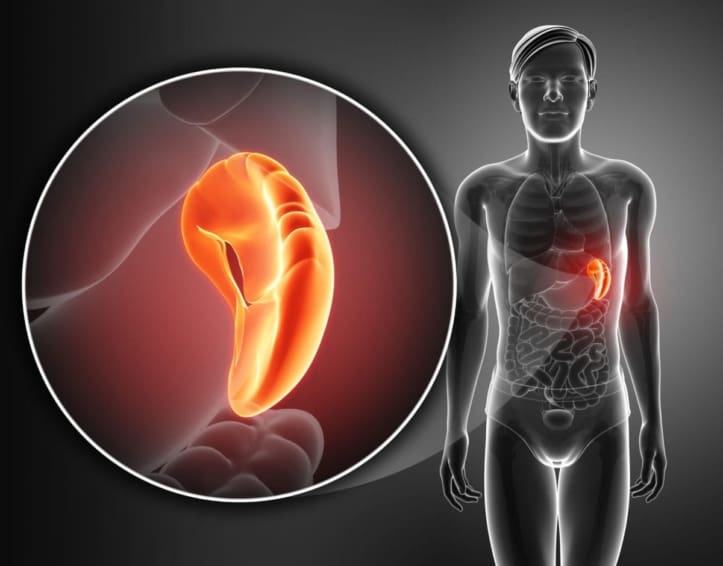
Your spleen is an organ located in the upper left side of your abdomen, under your ribcage. It filters unneeded material from your blood. It also helps your body fight germs and infections. Sometimes, the spleen stops working properly. This could be as a result of an accident or other health problems. In certain cases, a person’s spleen has to be taken out. This surgical procedure is called a splenectomy.
Path to improved health
There are many things that can damage your spleen or require that it be removed. They include:
- A ruptured or enlarged spleen
- A cyst or abscess
- A blood clot
- Cirrhosis of the liver
- Cancer that affects the spleen
- Sickle cell anemia
- Some diseases or disorders of blood cells
- Trauma
How is the spleen removed?
There are two kinds of splenectomy: Open and laparoscopic. In an open spleen removal, the surgeon makes a cut in the middle or left side of your abdomen, just below the ribs. they can then locate and remove the spleen. The incision is sewn or stapled back together.
For a laparoscopic removal, the surgeon makes several small incisions in your abdomen. An instrument called a laparoscope is inserted into one of the cuts. It has a tiny camera and light that allows the doctor to see inside. Other instruments are inserted into the other cuts. The doctor uses these to remove the spleen. The small incisions are then sewn or stapled closed.
Laparoscopic surgery is the most common way to remove a spleen. It is often less painful than open surgery. It also has a shorter recovery time. You may need to be in the hospital for only 1 to 2 days. Recovery should take about 2 weeks.
Some cases require open surgery. This could include when the spleen has ruptured. Your hospital stay will be longer, usually 2 to 6 days. It can take up to 6 weeks to heal completely from open surgery.
Things to consider
Once your spleen is taken out, you are more at risk of getting severe infections. Your risk of infection is highest in the first 2 years after you have a splenectomy. Your risk will also depend in part on your age and whether you have other diseases.
Children who have a splenectomy might need to take antibiotics for at least 2 years after the procedure. If you plan to travel to remote areas or won’t have a doctor available, you should have a supply of antibiotics with you in case of infection. Talk to your doctor about which antibiotics are right for you.
If you travel to tropical countries, you are at higher risk of contracting malaria. You are more likely to get babesiosis, an infection transmitted by deer ticks. Let your doctor know if you plan to travel to areas where these conditions are common. You are also at higher risk of infection from a dog bite. Seek care immediately if a dog bites you, or if you notice a rash that forms after you are bitten by a tick.
Vaccines can help prevent some infections. Before your splenectomy, you should get vaccinated against pneumococcal infection. Follow this with a booster shot every 3 to 5 years. You should also get a flu shot each year. Your doctor may want you to get 2 other shots. These include one to protect you against Haemophilus infections and another to protect against meningitis. If you’re already had a splenectomy, tell your doctor before receiving a vaccine.
Talk with your doctor about how to protect yourself from infections. Tell all your doctors, dentists, and other health care workers that your spleen has been removed.
When do I need to call my doctor?
If your spleen has been taken out, call your doctor at the first sign of infection. These signs include:
- Fever
- Chills
- Sore throat
- Unexplained cough
- Redness or tender spots on the body
- Severe abdominal pain
- Headache
- Drowsiness
- Pain with urination
Questions to ask your doctor
- What is causing the problems with my spleen?
- Do I need to have it removed?
- Which kind of surgery is best for me?
- What do I need to do to prepare for the surgery?
- How long will I be in the hospital after surgery?
- How long will it take me to heal completely?
- What problems will I need to watch out for after my spleen is removed?
- What steps can I take to avoid infections?
Resources
![]()
Copyright © American Academy of Family Physicians
This information provides a general overview and may not apply to everyone. Talk to your family doctor to find out if this information applies to you and to get more information on this subject.







